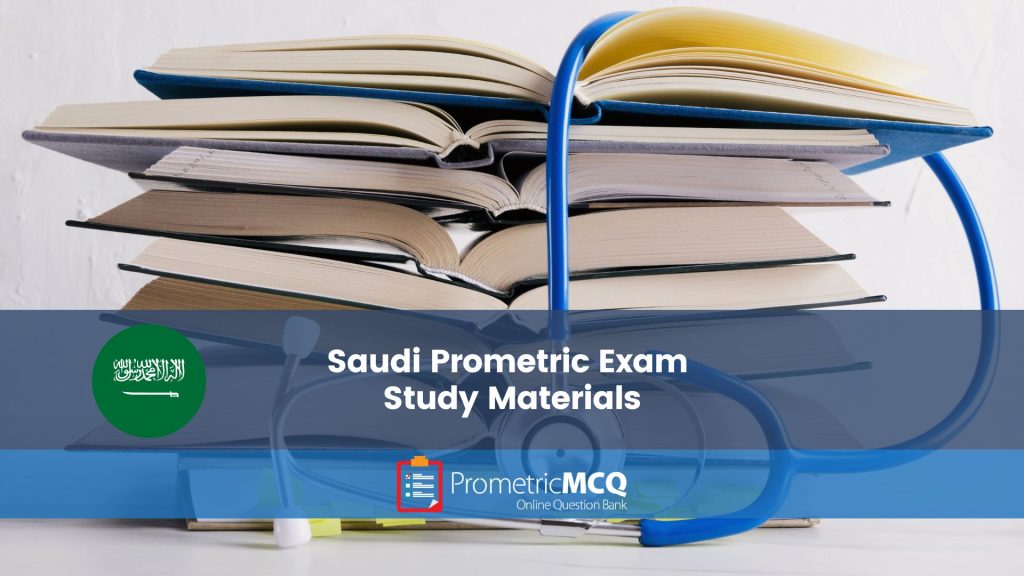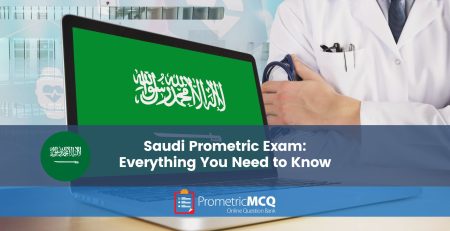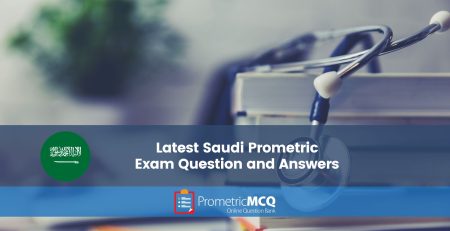
Saudi Prometric Exam Study Materials
Webmaster2024-04-20T19:45:58+00:00The Saudi Prometric Exam is a standardized test that assesses the knowledge and skills of healthcare professionals in Saudi Arabia. It is a requirement for obtaining a professional license to practice in the country. Studying for the exam is crucial as it ensures that candidates are well-prepared and have a higher chance of passing. To aid in their preparation, there are various Saudi Prometric Exam study materials available.
Key Takeaways
- Saudi Prometric Exam is a standardized test for healthcare professionals in Saudi Arabia.
- Using Saudi Prometric Exam study materials can help you prepare for the exam and increase your chances of passing.
- There are various types of study materials available, including books, online courses, and practice exams.
- Practicing Saudi Prometric Exam questions is crucial for success on the actual exam.
- Accessing Saudi Prometric Exam study materials is easy and can be done online.
Table of Contents
ToggleUnderstanding the Saudi Prometric Exam
The Saudi Prometric Exam consists of multiple-choice questions that cover a wide range of topics related to the candidate’s profession. The exam format may vary depending on the specific profession, but generally, it includes questions that assess the candidate’s knowledge, critical thinking, and problem-solving abilities. The topics covered in the exam are specific to the candidate’s field and may include subjects such as medical ethics, clinical skills, and professional standards.
The duration of the exam varies depending on the profession, but it typically lasts for several hours. The scoring system is based on the number of correct answers, with each question carrying equal weight. There is no negative marking for incorrect answers, so candidates are encouraged to attempt all questions even if they are unsure of the answer.
Subscribe for Saudi SCFHS Exam Questions
Get SCFHS Saudi Prometric Exam Preparation and Licensing Services
Benefits of Using Saudi Prometric Exam Study Materials
Using Saudi Prometric Exam study materials can greatly benefit candidates in their preparation for the exam. Firstly, these study materials provide a comprehensive overview of the topics covered in the exam. They help candidates gain a better understanding of the subject matter and ensure that they are well-prepared for all aspects of the exam.
Secondly, using study materials increases candidates’ confidence in taking the exam. By familiarizing themselves with the content and format of the exam, candidates feel more prepared and less anxious on exam day. This confidence can positively impact their performance and increase their chances of passing.
Lastly, using study materials improves candidates’ chances of passing the exam. By studying and practicing with these materials, candidates can identify their strengths and weaknesses and focus their efforts on areas that need improvement. This targeted approach to studying increases their chances of achieving a passing score.
Types of Saudi Prometric Exam Study Materials Available
There are various types of Saudi Prometric Exam study materials available to cater to different learning styles and preferences. Textbooks and study guides are popular options as they provide comprehensive coverage of the exam topics and often include practice questions and sample answers. These materials are widely available in bookstores and libraries.
Online courses and tutorials are another option for candidates who prefer a more interactive and flexible learning experience. These courses are designed specifically for the Saudi Prometric Exam and provide video lectures, quizzes, and practice exams. They can be accessed from anywhere with an internet connection, making them convenient for candidates with busy schedules.
Practice exams and question banks are essential study materials for the Saudi Prometric Exam. These resources allow candidates to simulate the exam experience and assess their knowledge and skills. They provide a large number of practice questions that cover all the topics in the exam, allowing candidates to identify their weak areas and focus on improving them.
Importance of Practicing Saudi Prometric Exam Questions
Practicing Saudi Prometric Exam questions is crucial for several reasons. Firstly, it familiarizes candidates with the format and types of questions that they will encounter on the actual exam. By practicing with similar questions, candidates can develop strategies for answering them effectively and efficiently.
Secondly, practicing exam questions helps candidates identify any knowledge gaps they may have. By attempting a wide range of questions, candidates can assess their understanding of the exam topics and identify areas where they need further study. This allows them to focus their efforts on improving their weak areas.
Lastly, practicing exam questions improves candidates’ time management skills. The Saudi Prometric Exam is time-limited, so being able to answer questions quickly and accurately is essential. By practicing with timed exams, candidates can develop strategies for managing their time effectively and ensure that they can complete the exam within the given time frame.
Tips for Preparing for the Saudi Prometric Exam

Preparing for the Saudi Prometric Exam requires a structured and disciplined approach. Here are some tips to help candidates in their preparation:
- Create a study schedule: Plan out your study sessions in advance and allocate specific time slots for each topic. This will help you stay organized and ensure that you cover all the necessary material.
- Focus on weak areas: Identify your weak areas through practice exams and question banks, and allocate more time to studying those topics. By focusing on improving your weaknesses, you can increase your chances of passing the exam.
- Take breaks and practice self-care: Studying for a demanding exam can be stressful, so it’s important to take regular breaks and practice self-care. Make sure to get enough sleep, eat well, and engage in activities that help you relax and recharge.
Sample Questions of Saudi Prometric Exam Study Materials
Saudi Prometric Exam Study Materials Sample Questions for General Practitioners
- Question 1: Management of Acute Myocardial Infarction (AMI)
- Scenario: A 52-year-old male, a known smoker, presents to the emergency department with sudden onset of severe chest pain radiating to his left arm, lasting for 2 hours. He looks anxious and is sweating profusely. His blood pressure is 140/90 mmHg, and his heart rate is 110 beats per minute. An ECG shows ST-segment elevation in the anterior leads.
- Question: What is the most appropriate initial management for this patient?
- Options:
- A. Immediate coronary angiography
- B. Administer aspirin, sublingual nitroglycerin, and morphine
- C. Immediate thrombolysis with tissue plasminogen activator
- D. Administer high-dose statins and beta-blockers
- Answer: B. Administer aspirin, sublingual nitroglycerin, and morphine
- Explanation: The patient is presenting with symptoms suggestive of an acute myocardial infarction (AMI). The initial management should focus on relieving pain, improving coronary blood flow, and preventing further myocardial damage. Aspirin (an antiplatelet agent) should be given immediately to reduce blood clot formation. Sublingual nitroglycerin (a vasodilator) helps to relieve chest pain by increasing blood flow to the heart. Morphine not only alleviates pain but also reduces the workload on the heart by lowering blood pressure and heart rate.
- Question 2: Diagnosis and Management of Type 2 Diabetes Mellitus
- Scenario: A 58-year-old female with a BMI of 32 kg/m², presents with fatigue, frequent urination, and increased thirst for the past three months. Her fasting blood glucose is 126 mg/dL, and HbA1c is 7.1%.
- Question: What is the most appropriate initial management strategy for this patient?
- Options:
- A. Start insulin therapy immediately
- B. Prescribe oral metformin and advise lifestyle modifications
- C. Recommend lifestyle modifications alone
- D. Begin a sulfonylurea regimen
- Answer: B. Prescribe oral metformin and advise lifestyle modifications
- Explanation: The patient presents with symptoms and laboratory findings suggestive of Type 2 Diabetes Mellitus. The initial management should include lifestyle modifications such as diet changes, weight loss, and increased physical activity. Additionally, metformin, a first-line medication for Type 2 Diabetes, should be started unless contraindicated. Metformin helps to lower blood glucose levels and improve insulin sensitivity. Insulin therapy is typically not the first-line treatment for Type 2 Diabetes unless there are specific indications such as significantly high blood glucose levels or symptoms of hyperglycemic crisis.
- Question 3: Identifying and Managing Community-Acquired Pneumonia
- Scenario: A 65-year-old male with a history of chronic obstructive pulmonary disease (COPD) presents with a three-day history of fever, productive cough with yellowish sputum, and shortness of breath. His temperature is 38.5°C, respiratory rate is 22 breaths per minute, and oxygen saturation is 92% on room air.
- Question: What is the most appropriate initial management for this patient?
- Options:
- A. Start broad-spectrum antibiotics and order a chest X-ray
- B. Prescribe a short course of oral corticosteroids
- C. Advise bed rest and increased fluid intake
- D. Recommend over-the-counter cough suppressants and antipyretics
- Answer: A. Start broad-spectrum antibiotics and order a chest X-ray
- Explanation: The patient’s presentation is suggestive of community-acquired pneumonia (CAP), especially given his background of COPD. The initial management should include empirical antibiotic therapy targeted towards the common pathogens causing CAP, such as Streptococcus pneumoniae. A chest X-ray is important for confirming the diagnosis and assessing the extent of the infection. Bed rest and fluid intake are supportive measures but not sufficient as standalone treatments. Corticosteroids and cough suppressants are not first-line treatments for CAP.
- Question 4: Managing Acute Asthma Exacerbation
- Scenario: A 30-year-old female with a history of asthma presents to the clinic with worsening shortness of breath, wheezing, and coughing for the past two days. She has been using her salbutamol inhaler more frequently with little relief. Her respiratory rate is 25 breaths per minute, and she is using her accessory muscles to breathe.
- Question: What is the most appropriate initial treatment for this patient?
- Options:
- A. Administer high-dose inhaled corticosteroids
- B. Start oral prednisolone and increase the frequency of inhaled short-acting beta-agonists
- C. Prescribe a course of antibiotics
- D. Recommend deep breathing exercises and steam inhalation
- Answer: B. Start oral prednisolone and increase the frequency of inhaled short-acting beta-agonists
- Explanation: The patient is experiencing an acute asthma exacerbation. The immediate treatment should focus on relieving airway obstruction and inflammation. Increasing the frequency of inhaled short-acting beta-agonists (such as salbutamol) provides quick relief of bronchospasm. Oral corticosteroids like prednisolone are added to reduce airway inflammation. High-dose inhaled corticosteroids are part of long-term management but are less effective in acute exacerbations. Antibiotics are not indicated unless there is evidence of a bacterial infection, and breathing exercises, while beneficial as a part of long-term management, are not effective for acute relief.
These detailed questions and answers are designed to simulate real-life clinical scenarios and test the depth of understanding in key areas relevant to general practice, as may be expected in a Saudi Prometric Exam for General Practitioners.
How to Access Saudi Prometric Exam Study Materials
Saudi Prometric Exam study materials can be accessed through various sources. Online resources are widely available and offer a wide range of study materials, including textbooks, study guides, online courses, and practice exams. Many of these resources are free or available at a nominal cost.
Local bookstores and libraries also carry a selection of Saudi Prometric Exam study materials. Candidates can visit these stores or libraries to browse through the available options and choose the materials that best suit their needs.
Exam preparation centers are another option for accessing study materials. These centers offer comprehensive study programs that include textbooks, online resources, and practice exams. They also provide guidance and support throughout the preparation process.
Overview of Saudi Prometric Exam Result
After taking the Saudi Prometric Exam, candidates receive a score report that provides an overview of their performance. The score report includes the candidate’s overall score, as well as scores for each section of the exam. It also provides a percentile rank, which indicates how the candidate’s performance compares to that of other test-takers.
The pass/fail criteria for the Saudi Prometric Exam vary depending on the profession and the licensing authority. In general, candidates are required to achieve a minimum passing score to obtain their professional license. It is important to review the specific pass/fail criteria for your profession to ensure that you meet the requirements.
It is crucial to review the score report carefully to understand your performance and identify areas for improvement. The score report provides valuable feedback on your strengths and weaknesses, allowing you to develop a study plan for future exams.
How to Interpret Saudi Prometric Exam Result
Interpreting your Saudi Prometric Exam result is an important step in your preparation for future exams. Here are some tips on how to interpret your result:
- Analyze your strengths and weaknesses: Review the score report to identify the areas where you performed well and those where you need improvement. This will help you focus your efforts on areas that require further study.
- Identify areas for improvement: Pay attention to the sections or topics where you scored lower and make a note of them. These areas should be a priority in your future study plan.
- Develop a study plan: Based on your analysis of the score report, create a study plan that focuses on improving your weak areas. Allocate more time to studying these topics and use targeted study materials to enhance your understanding.
Final Thoughts on Saudi Prometric Exam Study Materials
Using Saudi Prometric Exam study materials is essential for candidates who want to increase their chances of passing the exam. These materials provide a comprehensive overview of the exam topics, improve candidates’ understanding of the subject matter, and increase their confidence in taking the exam.
It is important to continue studying and practicing with exam questions to ensure that you are well-prepared for the Saudi Prometric Exam. Remember to seek help and support if needed, whether it’s through online forums, study groups, or professional tutors. With dedication and perseverance, you can successfully pass the Saudi Prometric Exam and obtain your professional license.
If you’re preparing for the Saudi Prometric Exam, you may be interested in an article on the Prometric MCQ website that provides study materials specifically tailored for nurses. This article offers valuable insights and resources to help nurses succeed in their exam. Check it out here.
Frequently Asked Questions about Saudi Prometric Exam Study Materials
The best study materials typically include a combination of textbooks, review guides, and online resources specific to your healthcare profession. For doctors, the USMLE (United States Medical Licensing Examination) review materials are often recommended.
Nurses might find NCLEX (National Council Licensure Examination) review books useful. Additionally, specific Prometric practice books and online question banks tailored to the Saudi licensing requirements are highly beneficial.
The Saudi Commission for Health Specialties (SCFHS) does not typically provide official study guides for the Prometric Exam.
However, they may list recommended topics or subject areas on their website. Candidates are advised to check the SCFHS website for any updates or guidelines regarding study materials.
Yes, there are several online resources available. These include websites offering practice questions, forums where candidates share study tips and resources, and online courses specifically designed for the Saudi Prometric Exam preparation. Be cautious to use reputable sources and verify the accuracy and relevance of the materials.
Study materials for exams like the USMLE, NCLEX, or PLAB (Professional and Linguistic Assessments Board) can be quite similar in content to those needed for the Saudi Prometric Exam.
However, it’s important to note that the Saudi Prometric Exam may have specific focus areas pertinent to healthcare practice in Saudi Arabia, so supplementing with region-specific study materials is advisable.
The choice of books depends on your profession. For medical practitioners, standard medical textbooks and USMLE review books are often recommended. For nurses, NCLEX review books are useful. It’s also beneficial to consult with peers or mentors who have successfully passed the exam for specific book recommendations.
Joining a coaching class can be beneficial, especially if you prefer structured guidance and a study schedule. However, it’s not mandatory. Many candidates successfully prepare for the exam through self-study using the appropriate materials.
Regular practice with mock exams or practice questions is crucial. It not only helps you assess your knowledge and identify weak areas but also gets you accustomed to the format and time constraints of the actual exam. Try to incorporate practice tests into your study routine, gradually increasing frequency as the exam date approaches.
While older editions of textbooks can still be relevant, it’s advisable to refer to the latest editions where possible. Medical and healthcare guidelines can change, and newer editions will have the most updated information.
Yes, there are several mobile apps available that offer practice questions, flashcards, and review materials for the Saudi Prometric Exam. These apps can be a convenient way to study on the go and reinforce learning.
The duration of preparation varies among individuals, depending on their base knowledge and the time they can dedicate to study. On average, candidates spend 3-6 months preparing for the exam, but this can vary based on individual circumstances and professional background.
Remember, consistent study and thorough understanding of your field are key to success in the exam. Additionally, always verify the credibility of your study resources and stay updated with any changes in exam patterns or content through the SCFHS website.
Apply for Saudi SCFHS License
Get SCFHS Saudi Prometric Exam Preparation and Licensing Services










